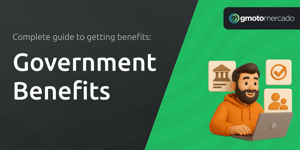Entering your twenties often comes with newfound freedom, responsibilities, and yes—credit cards. While these small plastic cards can open doors to travel rewards, emergency funds, and improved credit scores, they can also lead to debt spirals and credit damage if misused.
In this article, we’ll explore the landscape of credit card usage among young adults, highlight the most common mistakes, and offer practical strategies to take control of your financial future. Whether you’re a recent graduate, starting your first job, or simply striving for better money management, it’s never too early to build healthy habits.
Understanding Your Credit Card Landscape
Credit cards have become almost ubiquitous for young adults. Today, 96% of college graduates hold at least one card, and 76% of high school graduates already carry a credit line of some kind. Even 52% of high school students have access to credit, showing how early borrowing starts for many.
That early access can be a double-edged sword. On one hand, responsible usage can build a solid credit history that eases future borrowing for mortgages, auto loans, or even rental applications. On the other, missing payments or carrying high balances can quickly lead to financial strain when earning power is still modest.
The Growing Debt Crisis Facing Young Adults
Debt among those in their twenties has climbed sharply. In the first quarter of 2025, the average debt for young credit counseling clients reached $18,152—a nearly 20% jump from the previous year.
Nearly half of Gen Z cardholders (47%) carry month-to-month balances, up from 42% only a year earlier. These rising interest charges can trap borrowers in an endless loop of minimum payments, making it feel impossible to escape.
As debt levels rise, so do signs of distress. Auto loan delinquencies can lead to repossession, and struggling to pay even small bills erodes self-confidence and mental health. Yet with awareness and guidance, these challenges can become stepping-stones toward financial resilience.
Common Mistakes to Sidestep
Even the most disciplined young adults can stumble when learning the fine print of credit agreements. Here are the pitfalls to watch out for:
- Missing Payments: Late fees, higher interest rates, and credit score damage can follow a single missed payment.
- Carrying Balances Month-to-Month: High annual percentage rates (often 20% or more) make balances balloon quickly.
- Neglecting 0% APR Offers: Failing to pay off balances during introductory periods wastes powerful opportunities.
- Using Cards for Everyday Expenses: Groceries, utilities, and childcare should be budgeted separately to avoid surprise bills.
- Ignoring Year-End Statements: Overlooking interest charges and fees can lead to unexpected balances.
Recognizing these mistakes early is the first step toward remedying them. With small adjustments to your habits, you can steer clear of the most damaging financial detours.
The Real Impact of Misuse
Credit card mismanagement has tangible, long-lasting consequences. A single payment overdue by more than 30 days can plummet your score by up to 100 points, severely limiting your borrowing options.
Beyond credit scores, high-interest debt can sap your energy, distract you from career or educational goals, and even hinder renting an apartment. The anxiety of juggling bills often disrupts relationships and lowers overall well-being.
By addressing issues early—before debts spiral out of control—you can experience lasting financial peace of mind and avoid the stress that comes from endless creditor calls.
What’s Driving These Challenges?
Several factors converge to make credit card pitfalls especially common in your twenties:
- Income Disparities: Those earning under $40,000 are far more likely to carry revolving card balances (59%).
- Limited Financial Education: Many emerging adults haven’t had structured lessons in budgeting or credit management.
- Economic Pressures: Rising costs for housing, food, and education force young adults to lean on credit just to cover basics.
- Regulatory Changes: Post-2009 rules require under-21 applicants to prove independent income or have a co-signer, complicating early credit building.
- Gender Differences: Female cardholders report carrying revolving balances more often (52%) than male counterparts (44%).
Understanding these forces can help you contextualize your spending and borrowing patterns, making it easier to craft a strategy that works for your unique situation.
Strategies for Building Strong Credit Habits
Good news: small, consistent actions can yield powerful results. Here are practical steps to adopt today:
- Set up autopay and enable alerts to automate your payments with reminders.
- Make multiple small payments throughout the month instead of one lump sum.
- Aim to pay your statement balance in full each month to avoid interest.
- Use cards only for planned expenses and keep a separate emergency fund.
- Regularly review your credit report and dispute any inaccuracies.
By treating your credit card as a tool rather than a crutch, you can steadily build credit without accumulating debt and pave the way for larger financial goals.
Seeking Support and Professional Guidance
Sometimes, individual efforts need a boost. If debt becomes overwhelming, consider reaching out to a nonprofit credit counseling agency.
These organizations offer free or low-cost services, including:
- Budget counseling and debt management plans.
- Workshops on building healthy spending habits.
- Personalized advice on negotiating with creditors.
Since 2019, there’s been a 200% increase in 18-29 year olds seeking credit counseling, a clear sign that professional assistance can make a difference when self-management isn’t enough.
Embracing a Brighter Financial Future
Your twenties are a critical time for laying the groundwork of financial stability. While mistakes are inevitable, learning from them can transform setbacks into strengths.
Cultivate mindfulness around spending, harness available tools to streamline payments, and don’t hesitate to ask for help when needed. By adopting these habits now, you’ll position yourself for greater opportunities, less stress, and a lifelong sense of empowerment.
Remember: every payment, every dollar saved, and every lesson learned is a step toward long-term financial security and freedom. Start today, stay consistent, and watch your credit—and your confidence—soar.
References
- https://www.urban.org/urban-wire/many-young-adults-have-taken-debt-it-could-jeopardize-their-financial-futures
- https://www.flytotheworld.org/blog/fsa5na8bjjxkgecgalhp3wxpwt24t7
- https://millermillerlaw.com/articles/report-shows-fewer-young-adults-turning-to-credit-cards/
- https://digitalcommons.usu.edu/cgi/viewcontent.cgi?article=1315&context=etd2023
- https://www.bankrate.com/credit-cards/news/credit-card-debt-report/
- https://www.experian.com/blogs/ask-experian/mistakes-to-avoid-when-using-credit-card/
- https://ktvl.com/news/nation-world/more-young-adults-struggling-with-debt-money-management-international-credit-bills-card-debt-help-financial-counseling-dealing-with-inflation-high-interest-money-problems










